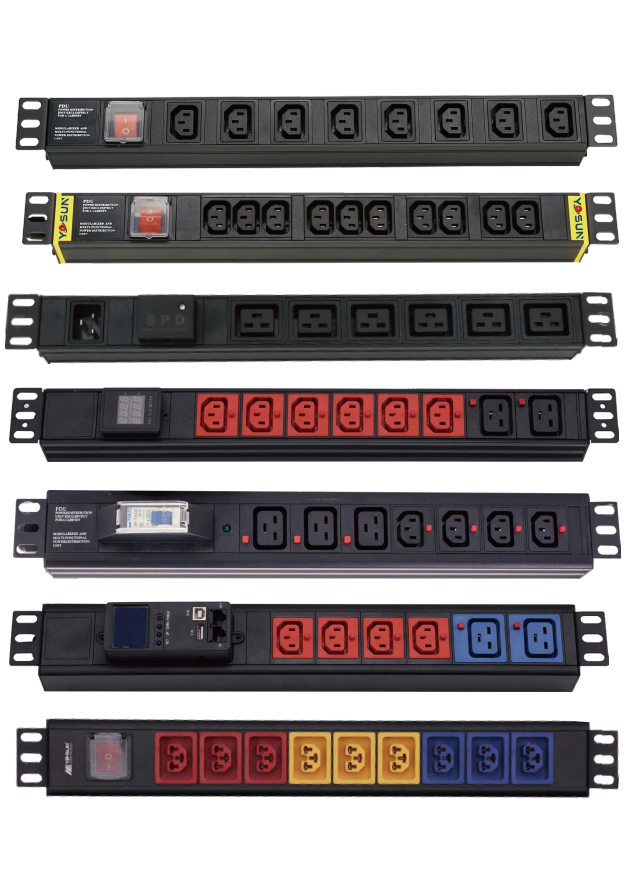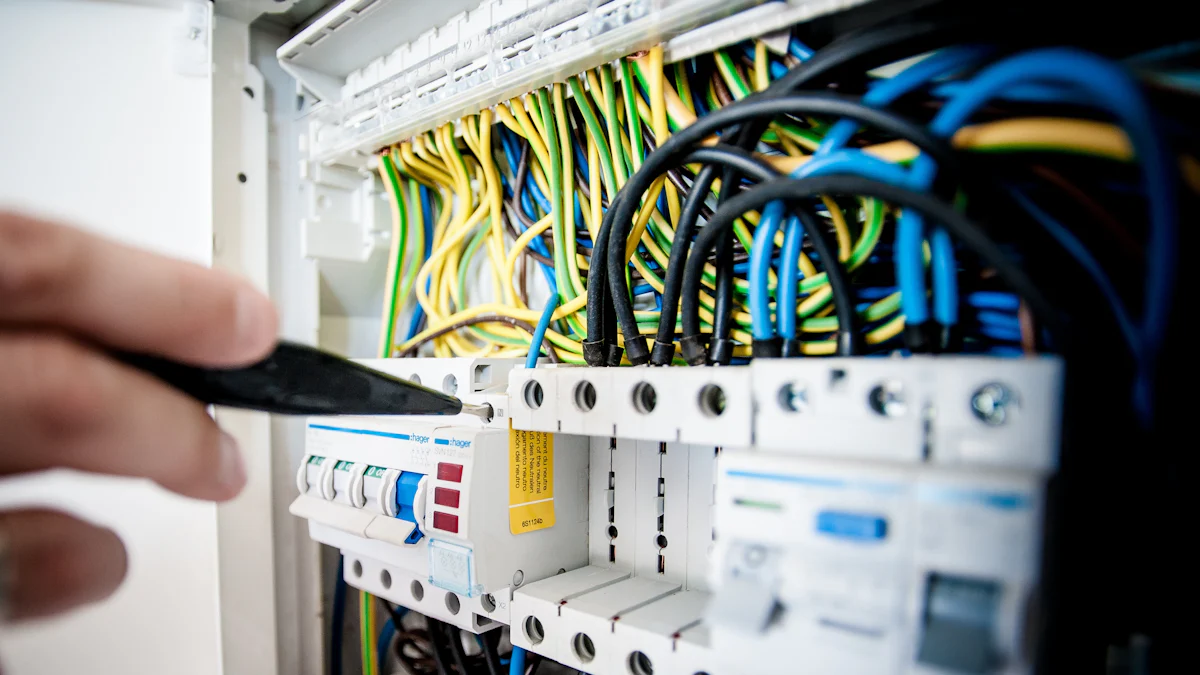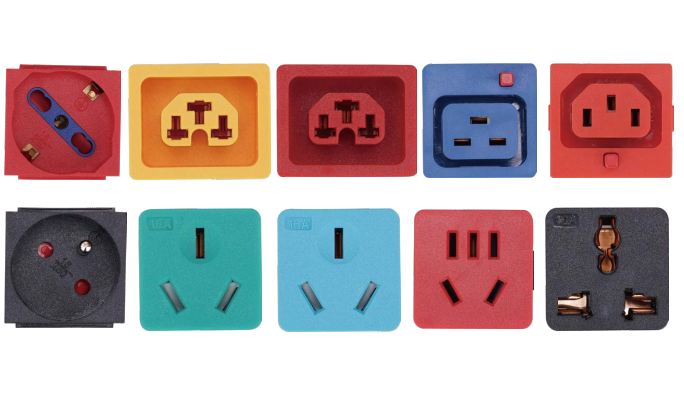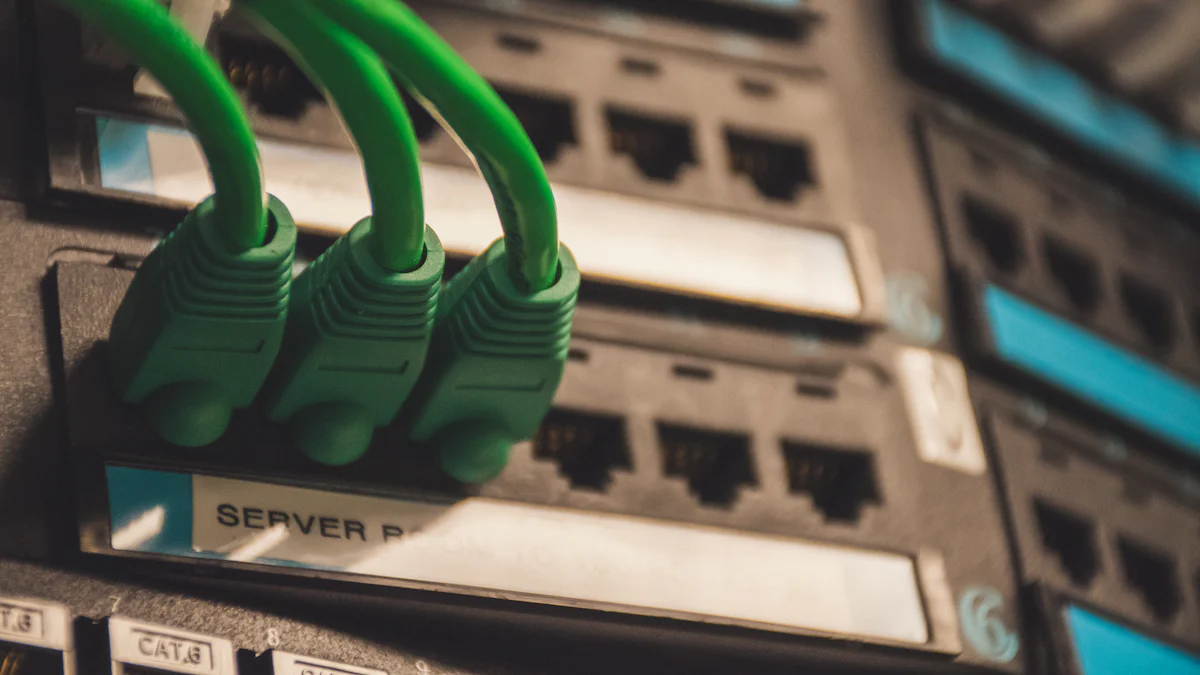© Copyright – 2010-2023 : All Rights Reserved. Sitemap
Power Distribution Unit PDU, rack mount PDU, PDU data center, Smart PDu, intelligent PDU
Power Distribution Unit PDU, rack mount PDU, PDU data center, Smart PDu, intelligent PDU
Global Sources Consumer Electronics, DATE:Apr 11-14th, 2025, Booth No.: 9H09
Data Center PDU Manufacturers
At YOSUN, we can help you find the data center PDU that best suits your business needs.
Our combines over 20 years of proven experience with time-tested outlet technology to deliver unmatched visibility, flexibility, and security. Learn why large data center companies rely on YOSUN PDUs to support their critical infrastructure.

As a leading manufacturer in the PDU market, YOSUN provides data center PDUs with high performance, reliability, and energy efficiency.
By focusing on innovation, quality, and customer satisfaction, Our has become a trusted partner for data centers worldwide.
YOSUN has passed a number of standards and certifications within the industry to ensure that the PDUs produced meet the highest safety and operational benchmarks.
YOSUN has improved customization options for data center PDUs. Unique customization based on installation, inputs and outputs, protection types, and other components meets a range of relevant requirements with a full-featured solution.
It is crucial to understand the different types of data center PDUs, as each is designed to meet different scale, complexity, and operational requirements. As a professional data center PDU manufacturer, YOSUN has many product types. Here are some common ones.
Basic PDUs are the simplest type and provide direct power distribution without any additional features. They are used as a plug-and-play solution to power multiple devices or racks within a data center.
Features:
– Easy to use and install
– Does not offer any monitoring or management features
Metered PDUs typically come with built-in digital displays, allowing data center administrators to monitor power consumption metrics through a local display.
Features:
– Ideal for monitoring power usage to help prevent overload risks.
– Displays real-time power consumption information, ideal for secure data centers that require isolated infrastructure.
Monitored PDUs can continuously track power usage, load balancing. Get a comprehensive view of power usage at the rack and outlet level.
Features:
– Ability to monitor multiple racks from a remote location, allowing users to access power metrics and receive alerts for user-defined threshold violations.
– Recommended for large data centers with higher requirements for uptime and reliability.
Switched PDUs offer all the features of a monitored PDU with the added ability to control power at the outlet level.
Features:
– Users can remotely restart, cycle, or shut down individual outlets, enabling efficient management of equipment.
– Helps prevent accidental overloads and manage power usage across multiple devices. Particularly useful in data centers where the ability to quickly resolve issues without onsite intervention is required.
This category includes metered, monitored, and switched PDUs, including advanced features for intelligently managing power distribution.
Features:
– Features include, remote access, real-time power monitoring, load balancing, and automatic power management.
– Allows automation that can optimize data center performance by dynamically adjusting power levels.
In a data center, it is essential that everything is reliable and that it is always on. Ensuring all the important IT equipment has power is also very important. But it’s hard to power all the equipment in a data center because it’s set up with lots of racks and cabinets all lined up in a row. A PDU(power distribution unit )can solve this problem.
An inappropriate PDU may cause overload, inefficient energy consumption, or even equipment failure. You may incur expensive repairs, data loss, or long downtime, which will put your business at a disadvantage.
To better assist customers, Youshang will explore how to choose the right PDU for your data center and the key factors to consider. We will better help customers make informed decisions to optimize the power distribution system of the data center and ensure the highest reliability and efficiency.

Before engaging in the selection process, it’s essential to grasp what is a PDU and its purpose in a data center.
A PDU is a device that supplies electricity to computers and networking devices in a data center. It usually features several outlets, enabling the connection of multiple devices.
PDUs ensure that the appropriate amount of power is accessible in the correct locations to support the requirements of your IT infrastructure. They minimize the distance between IT equipment and available outlets. They improve power quality and simplify cable management. PDUs are available in a range of styles, from standard outlets to enhanced remote control and monitoring.
One of the most significant risks in any data center is downtime. The cost of downtime can be astronomical, with organizations losing millions of dollars for every hour of system unavailability. For data centers supporting critical services, choosing the right PDU is critical.
The first step in selecting a PDU is to understand the power capacity and current requirements of your data center.
Every device in your data center has specific power consumption needs, so assess the total power load to confirm that the PDU possesses sufficient capacity without the danger of overloading. You can calculate the total power requirement by adding up the power of all devices connected to the PDU. This may include servers, switches, routers, and any other equipment.
If you consider future expansion and avoid overloading equipment. YOSUN’s recommendation is to select a PDU that can handle at least 20% more power than the current demand.
PDUs come in different designs, including vertical and horizontal. Choosing between these options depends on your data center’s layout and rack configuration.
Vertical PDUs are designed to be mounted on the back or side of a rack. Vertical PDUs can have up to 40 outlets. This saves space while providing easy access to outlets. It is ideal for use when rack space is limited.
Horizontal PDUs are mounted in a rack and take up 1 or 2 rack spaces (1U-2U). Due to their smaller size, horizontal PDUs also have fewer outlets.

When choosing a PDU, assess the quantity and type of outlets needed in the data center. The majority of PDUs found in data centers come with IEC standard outlets, while others may include outlets like Schuko or NEMA. The most frequently utilized outlets are of IEC 60320 C13 or C19 types, each rated for 250 VAC.
As data centers demand higher density, the increased power requirements have also increased the rated temperature of the outlets. C13 and C19 outlets are rated up to 70°C. For higher temperatures up to 150°C, YOSUN has C15 and C21 outlets available. All of these outlets are UL and VDE safety-certified.
The input power connection is the type of plug that connects the PDU to a power source. Common input types include NEMA L5-30P, L6-30P, and IEC 60309. Most data centers use either single-phase or three-phase power.
For critical equipment such as servers and storage systems, uptime is critical. PDUs with built-in redundancy features such as dual power supplies or battery backup ensure that if one power path fails, the other can take over without interrupting power delivery.
As a reliable manufacturer of data center PDUs, YOSUN’s reliability is backed by the warranty of its PDUs. A reliable warranty gives you peace of mind and protects your investment.

Intelligent PDUs provide sophisticated functionalities that greatly improve the management and observation of your data center’s power consumption.These characteristics might consist of:
Remote observation: Enables you to monitor energy usage and environmental factors from any location.
Alerts and notifications: Provide alerts for power irregularities, assisting you in addressing problems before they worsen.
Energy monitoring: Delivers live information on energy consumption, allowing for improved energy oversight and financial savings.
Data centers produce significant amounts of heat, and controlling that heat is essential for ensuring optimal performance. When choosing a PDU, take into account its thermal management capabilities. Certain PDUs are equipped with characteristics that aid in heat dissipation, like airflow management systems.
Additionally, take into account the environmental factors in your data center. If your facility is prone to dust or humidity, seek PDUs that feature protective enclosures or IP ratings to show their resilience against environmental influences.
Although it may be appealing to select the least expensive choice, consider factors beyond the upfront cost when assessing expenses. Although it may be appealing to select the least expensive choice. Additionally, take into account the total cost of ownership (TCO), which encompasses continuous operating costs like energy efficiency and upkeep.
While the initial investment in a premium smart PDU might be greater, it can lead to substantial energy savings and less downtime over time.
As you continue to grow, your data center’s power needs may change. Choose a PDU that’s scalable and adaptable to future technologies. Look for PDUs that can accommodate more outlets, higher power capacity, and advanced features.
For example, modular PDUs allow you to add or remove power modules as needed while maintaining the flexibility to expand equipment without replacing the entire system. Alternatively, consider a PDU with remote monitoring and management capabilities so you can adapt to changing needs without investing in a whole new unit.
Choosing the right PDU for your data center is an important choice that affects the efficiency, reliability, and overall function of your facility. Taking into account elements like power capacity, design, outlet layout, intelligent features, and future-readiness, you can make a well-informed decision that satisfies both your present and future requirements.
While making your choice, be sure to seek advice from industry specialists at YOSUN PDU manufacturers to confirm that the PDU you select fulfills the particular needs of your data center. By using the appropriate PDU, you can enhance power distribution, boost operational efficiency, and ultimately facilitate the expansion of your data center.
Whether you are looking for advanced remote monitoring, redundancy, or energy-saving solutions. As data center PDU manufacturers with a good reputation. YOSUN is committed to manufacturing high-quality PDUs that meet high safety standards, improve energy efficiency, and make it the first choice for data centers worldwide. Ensure the successful operation of your data center. Choose YOSUN to meet your power distribution needs and benefit from leading technology, compliance,e, and sustainable energy solutions.
In simple terms, UPS ensures power protection, whereas PDU handles power distribution.
UPS (Uninterruptible Power Supply) is primarily utilized to offer temporary electricity when the main power is lost or irregular, ensuring that the equipment remains functional or safely shuts down during a power loss. Its primary role is to maintain the consistency and reliability of power supply.
PDU delivers power from UPS or alternative power sources to different devices in the rack, ensuring that the equipment receives stable power. In simple terms, UPS offers power protection, whereas PDU handles power distribution.
Different purposes.
Rack-mount power strips are typically simple power outlet extenders that are primarily used to expand the number of power outlets for equipment, but lack any power monitoring, management, or protection capabilities. Surge protectors are designed to protect equipment from power surges and temporary high voltages, preventing damage by absorbing or dispersing surge currents.
In contrast, in addition to providing power distribution capabilities, PDUs may also have more complex features such as power monitoring, management, and load balancing, making them an important resource for managing and optimizing data center power.
Smart PDUs collect and evaluate power consumption in real time through integrated sensors and remote monitoring capabilities. They can track basic data such as current, voltage, power factor, load balance, ambient temperature, etc. and transmit this information to the data centre management platform via a web interface.
In addition, smart PDUs can automatically activate alarms when predefined thresholds are reached, prompting management to respond.
A Professional And Leading Manufacturer
For OEM
& ODM Power Distribution Unit (PDU)
You Can Trust
CONTACT
Ningbo YOSUN Electric Technology Co., LTD
Leading Professional Manufacturer in PDU Power Solutions
Contact Info.